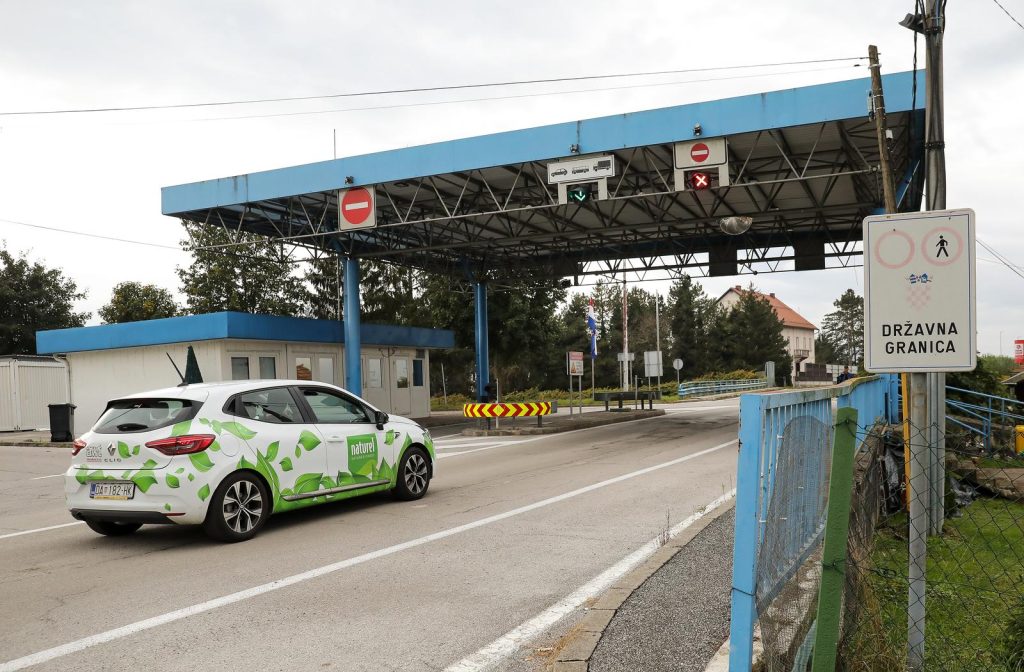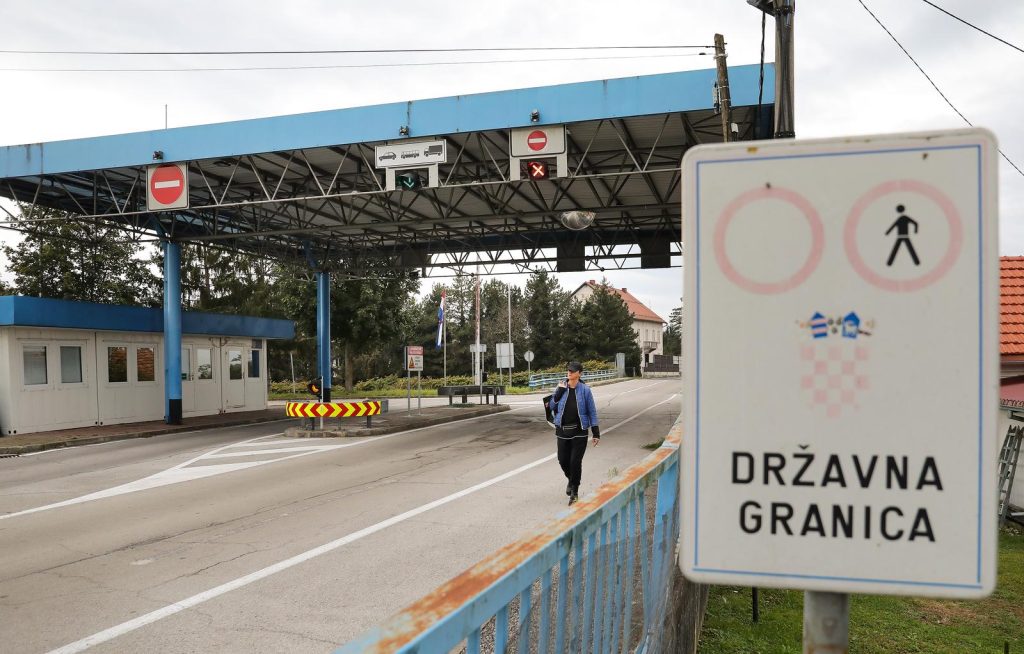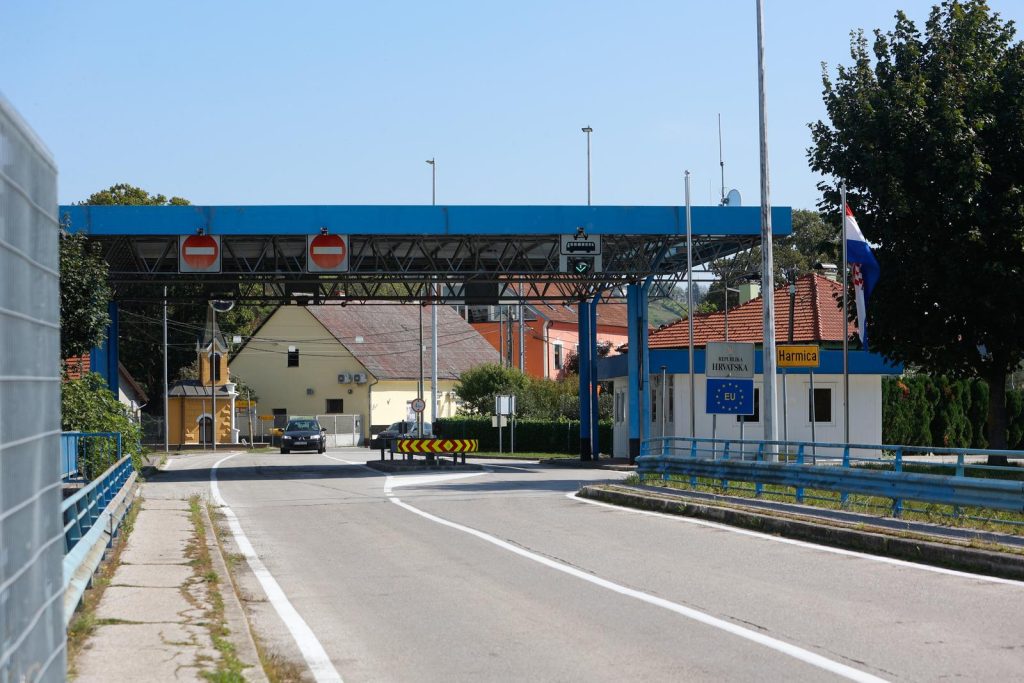September the 30th, 2024 – Despite the rules being fairly straightforward and clear, there’s still plenty of confusion. Here’s what you can and cannot bring across the Croatian border.
As Poslovni Dnevnik writes, before almost every summer holiday or indeed festive period when people travel abroad, the question arises as to what can and cannot be legally carried across the Croatian border. How many packs of cigarettes can be in the car? Will the boys in blue slap you with a fine if they come across a massive wheel of cheese and an enormous slab of bacon shoved in the boot? Can you carry the same amount of beer and wine? What about spirits? The list goes on.
There are some illogical points when it comes to the rules on what can and can’t be carried across the Croatian border, of course, but it’s still relatively clear. In some countries, you can import unlimited amounts of fish, from others, you can’t take even a gram of meat. Generally, you won’t have problems with sweets anywhere, but you will with baby food. Precisely because of all these often complex rules, of which there are so many that sometimes it isn’t easy to remember them even for the customs officers themselves, here’s a helpful list of all the things that you may or may not take across the Croatian border.
crossing the croatian border without gaining a fine

First, it should be made clear that this list refers solely to the import of goods from countries outside the EU, with the exception of Switzerland, Iceland, Norway, San Marino, Andorra and Liechtenstein. Therefore, the same rules apply to these last countries as if you were transporting goods within the EU, meaning there are no restrictions. Some other special rules apply to the Faroe Islands and Greenland, but in order not to further complicate the already long list, we’ll omit those two countries here.
In short, if you import goods across the Croatian border from third countries (these are non-EEA countries such as Bosnia and Herzegovina, Serbia, Montenegro, Albania, etc.), the limit for importing goods may not exceed 430 euros per person in sea and air transport and 300 euros in all other types of transport, as reported by Večernji list.
Air travellers can bring slightly more tobacco products across the Croatian border than those who travel by other means can. Those travelling by air can bring in 200 cigars, 100 cigarillos, 50 cigars and 250 grams of smoking tobacco. People travelling by road or rail can bring in 40 cigarettes, 20 cigarillos, 10 cigars and 50 grams of smoking tobacco. All passengers can bring the same amount of 50 grams of heated tobacco product, 10 millilitres of e-liquid and 50 grams of the so-called of new tobacco products from Article 94 paragraph 2 of the Excise Act.
crossing the croatian border with alcoholic drinks

When it comes to alcoholic beverages, the same rules apply to travel by road, air and sea transport. That means that everyone is allowed to bring in 16 litres of beer, 4 litres of wine and 2 litres of alcoholic beverages that have less than 22% alcohol, i.e. one litre of stronger alcoholic beverages (exceeding 22%).
If you want to pay excise duties, it’s of course possible, provided you are over 17 years old. In that case, you can bring in 800 cigarettes, 400 cigarillos, 200 cigars, a kilogram of tobacco, 10 litres of spirits, 90 litres of wine, 110 litres of beer and 100 millilitres of e-liquid. That amount, however, is the absolute limit. It means that regardless of how much you’re willing to pay to bring in more, you cannot.
animal products (Meat, fish, cheese, milk, eggs…)

Customs officials carry out official controls on products of animal origin that are part of the passenger’s personal luggage in which meat and milk and meat and milk products are not allowed to be brought across the Croatian border at all. Travellers can however bring in 20 kilograms of fresh, dried, cooked, salted or smoked fish, prawns, crabs and mussels per person. When it comes to other products of animal origin, such as honey, eggs, egg products, snail meat or frog legs, people entering Croatia can bring in up to 2 kg per person. Up to 5 kilograms of fresh fruit and vegetables, except for potatoes, is also permitted.
other items

Travellers crossing the Croatian border from third countries can bring up to 2 kilograms of infant milk powder, infant food and special food used for medical reasons and pet food used for health reasons, provided that it does not require refrigeration before opening.
Without limit or in quantity for personal use, all travellers can bring bread, cakes, biscuits, waffles and wafers, double-baked bread (rusk), toasted bread and similar toasted products with less than 20% processed dairy products and egg products that are stable at room temperature. Many other products such as chocolates and confectionery (including sweets) with less than 50 percent processed dairy products and egg products, food supplements packaged for the final consumer containing smaller amounts (total less than 20 %) of processed animal products can also be imported without restriction. The same is true for olives stuffed with fish, pasta and noodles, soup concentrates and flavour enhancers.
When it comes to fuel, travellers can transport up to 10 litres of identical fuel to the type in your vehicle in canisters, so no diesel can cross the Croatian border if you drive a petrol vehicle.
pharmaceuticals (medication)

The introduction of ready-made medicines for the personal medical needs of travellers is possible in the quantities necessary for treatment for up to one month (on the condition that they are approved by the competent authorities of the country of manufacture). The holder must also be in the possession of all of the appropriate medical documentation (transcript of medical history, doctor’s certificate).
It’s possible to bring in drugs for the personal needs of passengers. They must be in the amount needed for treatment for up to 5 days, and also with the possession of medical documentation, from which the necessity of taking the respective drug arises.
If passengers decide to take a gamble in this regard when crossing the Croatian border, they can be slapped with a fine of up to 13,300 euros. When determining the amount of the fine, it’s important to note what and how much of it you tried to smuggle in. For the offence of failure to declare goods or failure to declare all goods or failure to submit goods or failure to submit all goods, from Art. 64, paragraph 1, point 11 of the Law on the Implementation of EU Customs Legislation, a fine for a natural person ranging from 265 to 6,600 euros is prescribed.










